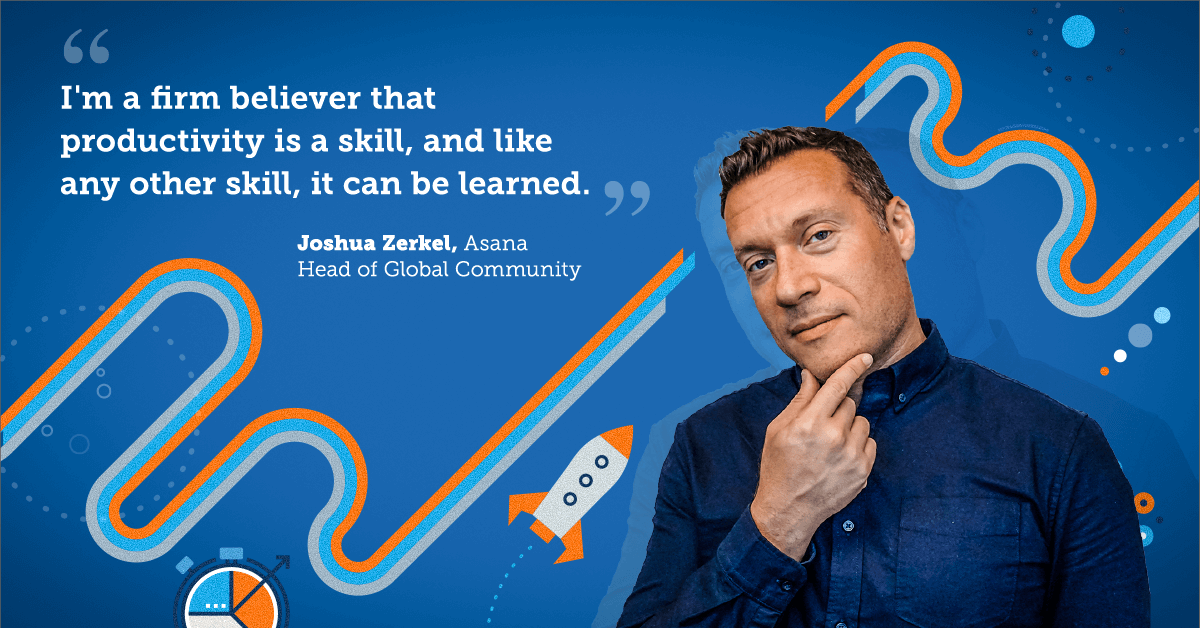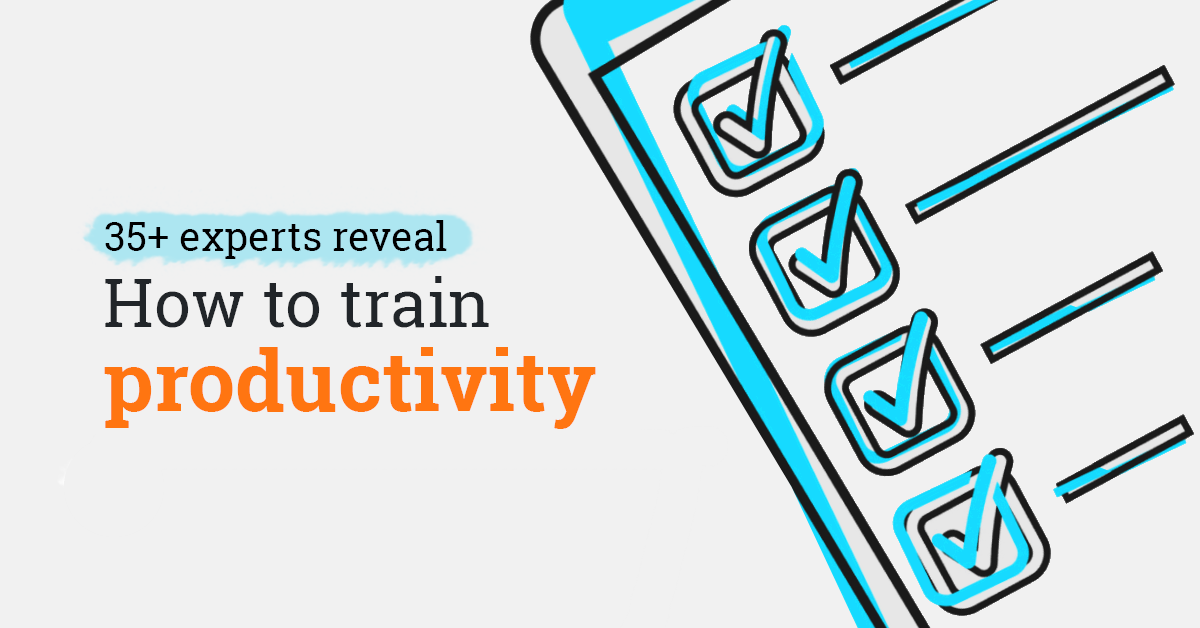As the Head of Global Community at Asana, Joshua Zerkel is no stranger to the realities of what distractions at work and a lack of productivity look like. He has spent his career helping individuals and businesses use technology as a tool to help smooth workflow and improve time management.
TalentLMS’s Eri Panselina had the chance to sit down with Joshua and discuss the causes, as well as the potential solutions to a problem affecting workers everywhere: too much time spent doing work about work instead of doing actual work. Here’s what he had to say:
So much time spent, so little work done
Eri Panselina: Asana’s Anatomy of Work Index came to the shocking conclusion that employees spend 60% of their workweek thinking, discussing, and doing work about work. Do you think this is an adverse effect of technology and the use of too many apps nowadays?
Joshua Zerkel: It’s pretty shocking when you look at how much time is wasted on work about work. When Asana looked into it, we found that work about work takes up the majority of the working week, detracting from the skilled work we often need to spend more time on. While technology is empowering teams across the world to communicate and collaborate more than ever before, information is becoming increasingly fragmented and siloed due to the abundance of apps at our disposal. The average worker uses ten different apps to complete their tasks every day and the more apps they use, the longer they spend feeling distracted or procrastinating.
“In fact, the average worker wastes one hour, four minutes daily due to distractions.”
In addition to app-related distraction, one of the biggest barriers to productivity for global knowledge workers—and factors directly into fueling work about work—is the amount of time spent on emailing and responding to messages. This combination of app proliferation and the email black hole makes it really hard to get work done. To work effectively, teams need to simplify their array of tools, better manage communication, and coordinate what needs to get done—and this is where work management platforms can help.
Eri: What do you think is the most important adjustment companies should make in order to increase their employees’ productivity?
Joshua: There are a number of different adjustments that can be made to improve productivity, including simplifying the array of apps a team uses and cutting down on unnecessary meetings. But those strategies aside, one of the biggest revelations from our study is that
“the average knowledge worker spends more than four hours each week on work that they or somebody else has already done”
Fixing this problem can give each team member back hours of wasted time each week. The best way to solve this is to make sure for every project and task there’s clarity on who is doing what and by when, and that those responsibilities are organized and documented in a way that makes it easy for everyone on the team to keep track of.
Eri: What about each individual? What is the no.1 habit we should change to decrease the risk of burnout?
Joshua: Burnout can be triggered by many different factors. Our study revealed the biggest source of stress for more than a quarter (26%) of knowledge workers is their growing workload. This is reinforced by 83% of the respondents stating that work hadn’t progressed as quickly as it should because their organization doesn’t have the clear processes for every member of the team to work effectively. To solve this, it’s critical to have the right processes in place to help arm each individual with the tools and clarity needed to do their job effectively. When they have that level of clarity, they can better manage their workload and thereby reduce their overall stress and potential for burnout.
A little productivity training could go a long way
Eri: Do you think that productivity is a skill that can be trained inside a company? If yes, how?
Joshua: I’m a firm believer that productivity is a skill, and like any other skill, it can be learned. However, it’s often hard in the midst of day-to-day work for individuals to carve out time to develop their productivity skills. It’s much more effective when a company decides that productivity skills are critical for everyone to have, and offers skill development opportunities for people to take advantage of. There’s a few ways this can happen. Outside experts can be brought in to offer seminars on topics like time management, holding better meetings, or business communications. Other times, you may already have people on your team who everyone identifies as being good at one or more of these skills, and they can be encouraged to host a lunch-and-learn or share their knowledge more informally by mentoring team members who want to learn. Another approach would be to offer online courses that individuals can sign up for.
“The critical thing is that the company makes it clear that productivity skills are valued and that they offer a way for each team member to upskill”
It’s just not realistic to expect that most people will be motivated to seek out skill development on their own.
Eri: Asana has implemented “No Meeting Wednesdays”. Have you seen any benefits from the policy?
Joshua: I personally love No Meeting Wednesdays. On that day, I and the rest of the team can look forward to long blocks of time to focus on critical work without being interrupted. What’s great about it is that everyone across the company has agreed that this time for focused work is a priority. It doesn’t mean we don’t talk or communicate with each other on Wednesdays—it just means we don’t schedule meetings (there are four other days a week when we can do that). Don’t get me wrong—when effective, meetings can be helpful and useful, but when they’re not, they can contribute to the amount of work about work we do each week. According to survey respondents, nearly two-thirds of the meetings they participate in are unnecessary. So for us, since we’re only able to hold meetings four days a week, No Meeting Wednesdays help us make sure the meetings we do hold are necessary and effective.
| Tags: Employee Training,Productivity



